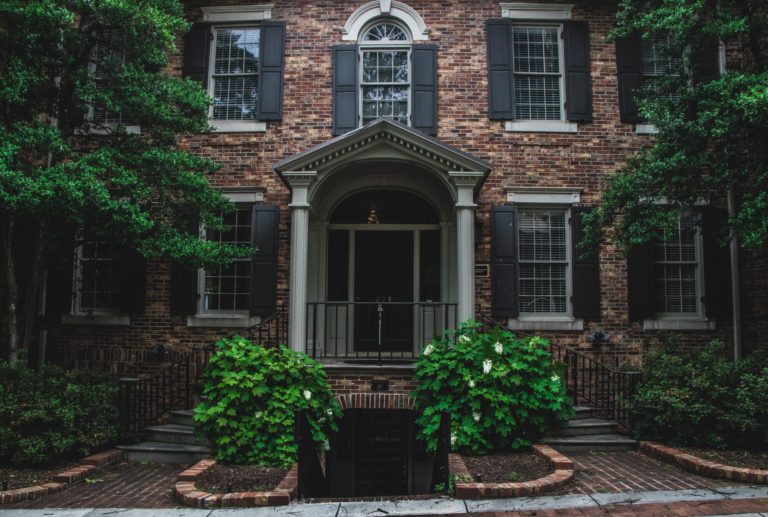
While there are numerous types of investments you can choose from, very few are more valuable than real property. For starters, the real estate industry tends to maintain a steady upward path as long as a location is growing. Of course, property may lose value over the years as it gets dilapidated, but this is often countered by the consecutive uphill curve in the cost and demand of housing.
Nonetheless, factors such as economic performance, political stability, industrialization, and pandemics are not to be overlooked. In 2020, for instance, the covid-19 pandemic saw a significant decline in loan rates in the UK and many other places around the globe. Mortgage lending conditions also became more favorable to borrowers as the market lagged towards recovery. This presented an opportunity to homeowners who have always wanted to move into a bigger home but shied away due to the prevalently tougher rates and conditions.
When buying a home, you are making one of the biggest investments in life. It doesn’t come cheap, plus it takes some work to get just the right property for your needs and preferences. The process itself is rather complex at times; it could easily drive someone nuts. This calls for utter preparation if at all you are to get the best deal that will maximize your investment. It means conducting research, being keen, and being informed before you sign on the dotted line and hand over the check. This way, the seemingly frustrating process could easily become a walk in the park for you.
With the little said, here are some things you need to know when planning to buy a house.
1. The purpose of buying the house
Of course, you just don’t wake up one day and decide to buy the property across the street in your neighborhood just because it has a nice gate and fancy flowering trees. You have to have a substantial need and purpose in mind. For instance, the 3-bedroomed house you purchased years ago may not be suitable now that you have five more family members and receive guests often. You may also have some money to invest and have considered house-flipping as your new venture.
In the first case, your considerations when choosing a house will lean more towards your personal preferences. When buying a house to sell, however, you will be more focused on what will best appeal to the demographic or potential buyers in the said location. Home prices will also vary depending on factors such as the location, size, design, and condition, which bring us to the next important point.
2. Have an affordable budget
Before you embark on your search, you will need to have a realistic picture of what you can afford. Of course, a house is an expensive investment, and most people won’t have enough cash lying around to purchase a home. This means that you will probably need a mortgage loan to make the purchase. While it is easy to walk into a bank or lending facility and walk out with your home loan approved, that shouldn’t rule out the importance of affordability. Having a realistic budget will help you avoid financial constraints when you start repaying your mortgage.
This means researching the mortgage market and choosing a home loan you can comfortably afford without much strain. It means comparing offers from several mortgage lenders to find the deal that best works for you. With a reliable mortgage loan calculator, the process becomes way much easier for you. Thanks to technology, all you need is to enter some crucial details on a page and the tool does all the heavy lifting for you. Some of these details may include:
From these details, you will know how much to pay each month, the amount to pay for interest-only loans, how many months you will be paying, total payments, and total interest. This information will go a long way in helping you choose the right home loan for your needs and budget. In a nutshell, having a budget will help you seek funding carefully.
3. Research is fundamental
You can never be over-prepared when it comes to buying a property. As hinted earlier, you will want to dedicate a significant amount of time to research before making your final decision. Think about the location you want to live or invest in and find out how much the properties similar to the one in your mind have sold for over the past few months. In this case, real-estate websites and suburb profiles can help. From there, you will also want to reach out to some of the most reputed realtors in the area for a professional look into how the real estate market in that suburb has been generally. The last thing you want is to buy a home for too much in an area you will end up regretting due to issues such as insecurity, mean neighbors, poor access to amenities, noise, environmental pollution, and so forth. In your research, some factors to put in mind may include:
You can also extend your research to the surrounding suburbs for a clear picture of what your life will be like in the new house. With such information in mind, you can narrow your options down further by trying to get the current worth of the houses in your suburbs of choice. Careful research will help you get the ideal house in a place you like without overpaying for it.
4. Consider using a realtor
Whenever buying property, using experienced parties in the real estate industry is the best way to go. In this case, we are talking about real estate agents who have been in business for a significant amount of time. For starters, an expert real estate agent is well versed with the real estate market in your area of interest. For instance, if you are looking to buy houses for sale in Los Angeles or New York, and you are unaware of the local property market in those cities, it would be wise to consult a realtor to make your work easier. This means that they will have more knowledge about the prices and types of houses available more than you do. Additionally, they could also be well connected and may help you negotiate a better deal during your house purchase. They will know who to contact for more information about a for-sale property you saw online or through a friend, but not much contact information was provided.
Most importantly, they will help you easily process paperwork, which is perhaps the most arduous task in the process of buying a house. They will help you find the right home; avoid closing issues, save money, and save time. Nonetheless, not all realtors are alike. To get a reliable one, below are some factors to think about when choosing a real estate agent:
5. Understand all other possible costs
If you’re still following, we talked about having a realistic budget above. Nonetheless, it is not uncommon for homebuyers to sideline the silent costs of purchasing a home, as some like to call them. These forgotten costs can have a huge toll on your overall costs of house purchase if not considered. Some of these may include things like:
Extra expenses are common when buying a house. However, they are often forgotten when making a budget. A wise home buyer knows to include these in the main budget, so they can avoid inconveniences and surprises when finalizing the deal.
6. House inspection is critical
You will spend a considerable amount of money on it, but a home inspection is extremely essential before buying a house. A professional inspection can help unearth various types of concealed problems that an average buyer may not catch when they inspect the house of interest on their own. These could exist in electrical wiring, plumbing, roofing, and structural aspects of the home.
Most of them are quite costly to repair or replace compared to the amount you spend investing in a professional inspection. After all, you could ask the seller to pay for the inspection and have your chosen home inspector conduct it as a show of good faith. Therefore, a property inspection gives you more bargaining power as a buyer. It also helps ensure that you really understand what you are buying. It gives you peace of mind and spares you from the frustration of following up with your seller a while after you have already settled in and discovered a major problem. In a nutshell, a house inspection helps you:
7. Your options and alternatives before buying
Earlier in this piece, we mentioned the importance of considering the purchase purpose. Well, perhaps your family has outgrown the available space and you have to move into a bigger home. Maybe you have to relocate to a different city for work, leisure, or family reasons. While these are all valid, it is also worth comparing alternative options to buying a new house.
For instance, you could decide to renovate, especially if the prices have dwindled. If your old home feels dull and boring, perhaps a few home renovation tips are all you need. Apart from upgrades and remodeling, you could also add space by attaching an accessory dwelling unit to your home. If you have some space in your backyard, you could also consider outdoor living spaces to make your house more comfortable. At the end of the day, it all depends on your needs, preferences, and capabilities.
Renting could also be an option, but very few people want to go back to profuse sweating moments any time the rent is late. If you are moving from your own home, you may also want to think about selling the previous one first. This can actually help bump up your budget or reduce the total purchase costs for your new home.
8. Negotiation skills are paramount
Last but not least, you may need to polish your negotiation skills first if you intend to buy a house. This helps you get the best price for the house. It also helps you avoid panic buying, which may later lead to frustrations and regrets. Remember, you want something that meets your needs and requirements, especially your budget. If the deal doesn’t feel attractive enough for you, it is fine to walk away and check out the next property. As we covered above, however, you don’t have to be a professional negotiator to successfully make the right house purchase decision. A good realtor will help you do just that without uttering a word to the seller. Important factors to remember when negotiating a house purchase deal include:
Finally, it is always best to aim at purchasing property with some room for future upgrades. In this case, space is perhaps the most prominent factor. This way, you can have a way of boosting your property value even more in case you would like to resell it. All the same, buying a house is not anything close to an easy process. It takes some wits, time, keenness, and bundles of money. When planning to make this big investment, knowing the above few things will keep you a happy man/woman.




